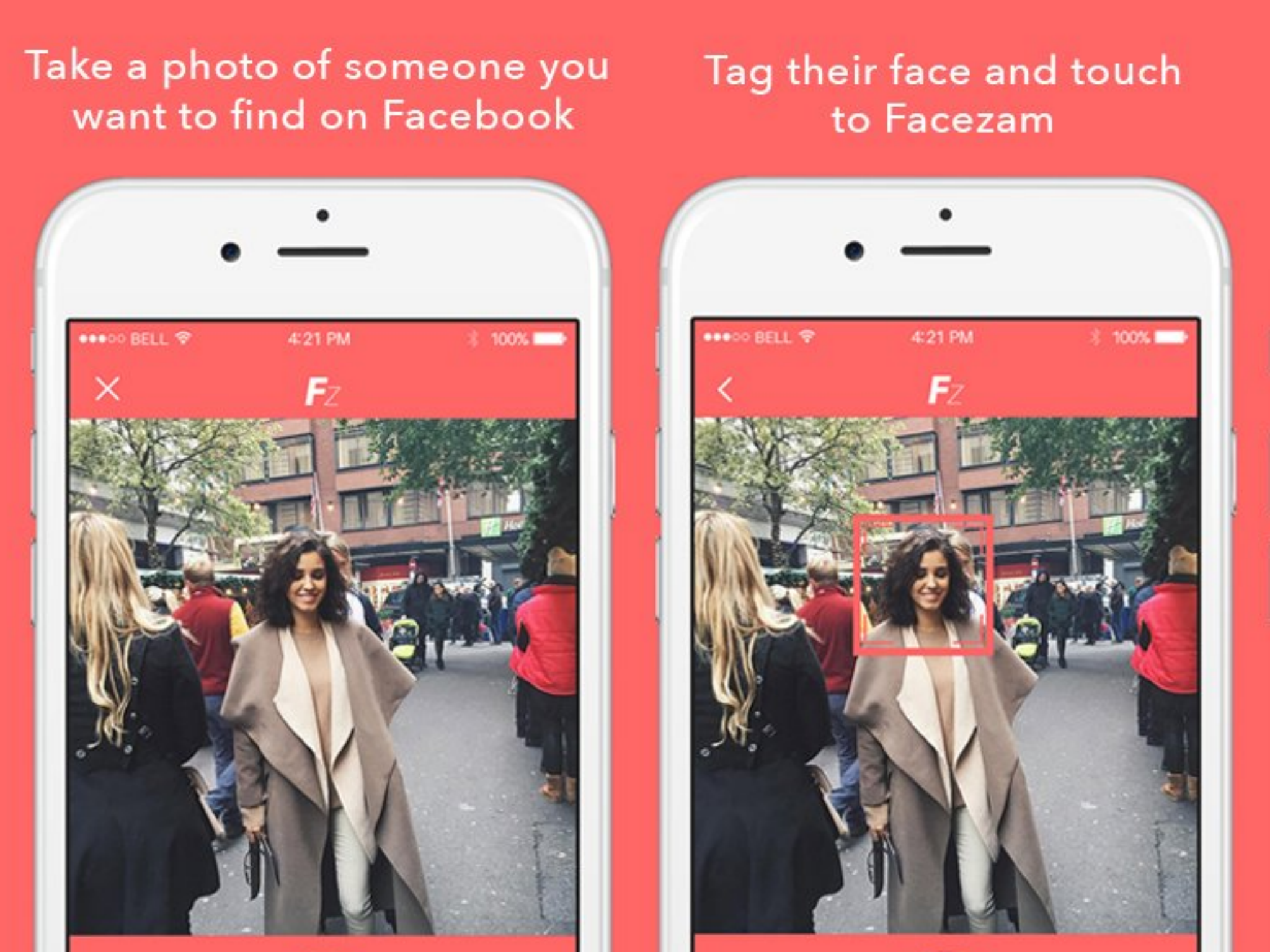Facezam: Creepy app claiming to match strangers' photos to their Facebook profile is a lie
'Users will be able to identify anyone within a matter of seconds, which means privacy will no longer exist in public society'

A British 'entrepreneur' claims to have created an app capable of tracking anyone down on Facebook just by analysing a picture of their face.
Facezam, which has since been revealed to be a lie, said it planned to launch on iOS on 21 March.
It claims to scan billions of Facebook photos per second, which it accesses through a database for developers.
According to its website, Facezam works with 70% accuracy, and can link an image to a Facebook account within seconds.
However, that figure is said to drop to 55% when a person’s face is positioned at an angle or partly covered by sunglasses, hair or a hat.
“Take a photo of anyone, Facezam it and you can find their Facebook profile in less than ten seconds,” Facezam says.
“So that beautiful girl you see on the train every day? Take a photo of her, Facezam it and you can find her on Facebook in a matter of seconds. The rest is up to you.”
The worrying creation sounds a lot like Find Face, which performs a similar service for users of VKontakte, a Russian social network.
“Facezam could be the end of our anonymous societies,” Jack Kenyon, the founder of Facezam – which was inspired by music-recognition app Shazam – told the Telegraph.
“Users will be able to identify anyone within a matter of seconds, which means privacy will no longer exist in public society.”
Mr Kenyon added that there was no way for Facebook users to protect themselves from Facezam, which he believes to have the power to reduce crime, as it makes complete strangers almost instantly identifiable.
Unsurprisingly, Facebook has confirmed that the app violates its privacy policy.
“This activity violates our terms and we’re reaching out to the developer to ensure they bring their app into compliance,” the social network said.
However, Mr Kenyon disagrees. “We've looked into this, and are confident the app won't be violating Facebook's terms,” he said.
Facebook and Instagram this week announced that they will introduce a policy banning developers from using people's posts to spy on them.
This article was amended after Facezam turned out to be a lie, used as a publicity stunt for a UK marketing agency.
Facebook's deputy chief privacy officer Rob Sherman confirmed as much in a Twitter post, writing, “This app was a hoax to get attention, not a real product. (And yes, we have technical limitations in addition to policy.)”
A Facebook spokesperson added, “People trust us to protect their privacy and keep their information safe. This activity would violate our terms.”
Join our commenting forum
Join thought-provoking conversations, follow other Independent readers and see their replies
Comments
Bookmark popover
Removed from bookmarks